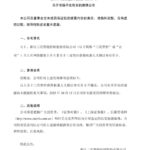The 20th issue of “Qiushi” magazine to be published on October 16 will feature an important article by Xi Jinping titled “Promoting the Implementation of the Global Development Initiative, Global Security Initiative, Global Civilization Initiative, and Global Governance Initiative.” This article contains excerpts from important statements made between September 2021 and September 2025.
The article emphasizes that in today’s world, peace deficit, development deficit, security deficit, and governance deficit continue to grow. The proposals for building a community with a shared future for mankind, along with the Global Development Initiative, Global Security Initiative, and Global Civilization Initiative, aim to address these deficits, promote the construction of a better world, and create better lives for people of all countries.
The article points out that development is key to achieving people’s happiness. We advocate for inclusive and beneficial economic globalization, promote high-quality Belt and Road cooperation, and implement the Global Development Initiative with the goal of achieving universal access to growth opportunities, promoting inclusive development paths, allowing people of all countries to share development achievements, enabling nations in the “global village” to jointly pursue development and prosperity, and making win-win concepts the consensus. We must prioritize development, maintain a people-centered approach, uphold inclusiveness, drive innovation, promote harmony between humanity and nature, maintain action-oriented approaches, and jointly advance global development toward a new stage of balanced, coordinated, and inclusive growth.
The article states that security is the prerequisite for development, and humanity forms an indivisible security community. In today’s interdependent world, pursuing so-called absolute security or exclusive security is unworkable. The Global Security Initiative advocates promoting development through cooperation and security through cooperation, building a more balanced, effective, and sustainable security architecture. We must adhere to the vision of common, comprehensive, cooperative, and sustainable security, respect national sovereignty and territorial integrity, abide by the purposes and principles of the UN Charter, value the legitimate security concerns of all countries, resolve differences and disputes between nations through dialogue and peaceful consultation, and coordinate the maintenance of security in both traditional and non-traditional fields.
The article notes that diverse civilizations represent the true nature of our world. In today’s interconnected global community, the inclusive coexistence and mutual learning among different civilizations play an irreplaceable role in advancing human society’s modernization process and enriching the global garden of civilizations. The Global Civilization Initiative aims to promote mutual understanding and friendship among peoples of different countries and encourage inclusive mutual learning among civilizations. We should jointly advocate respect for the diversity of world civilizations, jointly advocate the promotion of common human values, jointly advocate the importance of civilizational inheritance and innovation, jointly advocate strengthened international people-to-people exchanges and cooperation, and strive to create a new situation of cultural exchanges, integration, and people-to-people connectivity among nations, making the global garden of civilizations vibrant and flourishing.
The article indicates that this year marks the 80th anniversary of the victory in the World Anti-Fascist War and the establishment of the United Nations, representing an important moment to remember history and jointly create the future. Eighty years ago, the devastation of two world wars prompted deep reflection within the international community, leading to the establishment of the United Nations and opening a new chapter in global governance. Eighty years later, while the historical trend of peace, development, cooperation, and win-win outcomes remains unchanged, Cold War mentality, hegemonism, and protectionism persist, new threats and challenges continue to grow, the world has entered a new period of turbulence and transformation, and global governance stands at a new crossroads. History teaches us that the more difficult the times, the more we must uphold the original intention of peaceful coexistence, strengthen confidence in win-win cooperation, and persist in advancing with the logic of historical progress and developing with the trend of the times. To this end, China has proposed the Global Governance Initiative to work with all countries in promoting the construction of a more just and reasonable global governance system and jointly move toward a community with a shared future for mankind. First, uphold sovereign equality. Second, comply with international rule of law. Third, practice multilateralism. Fourth, advocate people-centered approaches. Fifth, emphasize action orientation.



